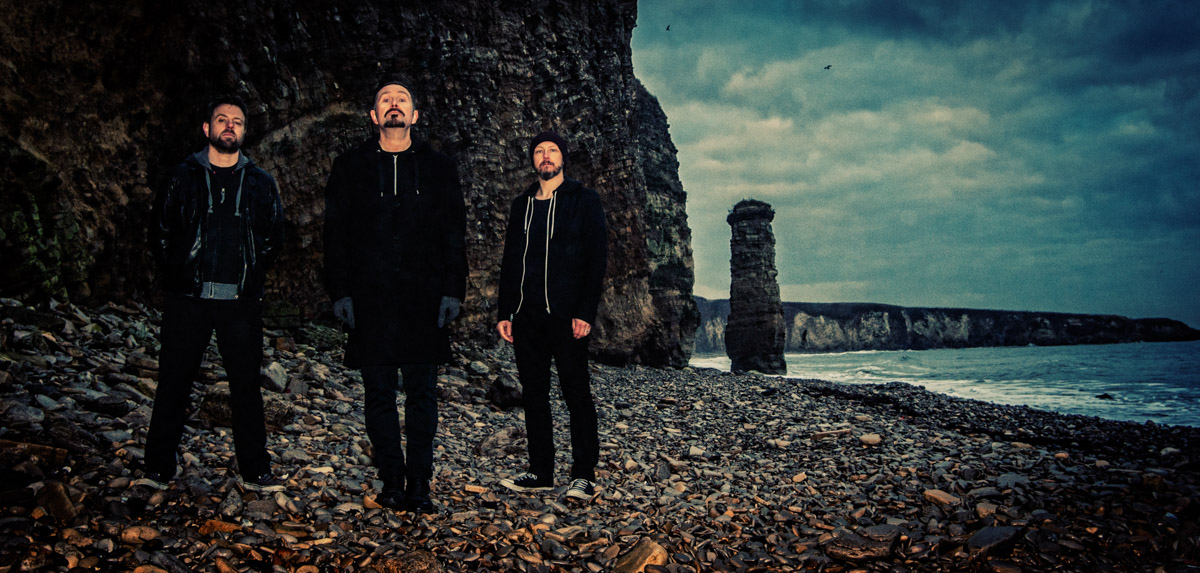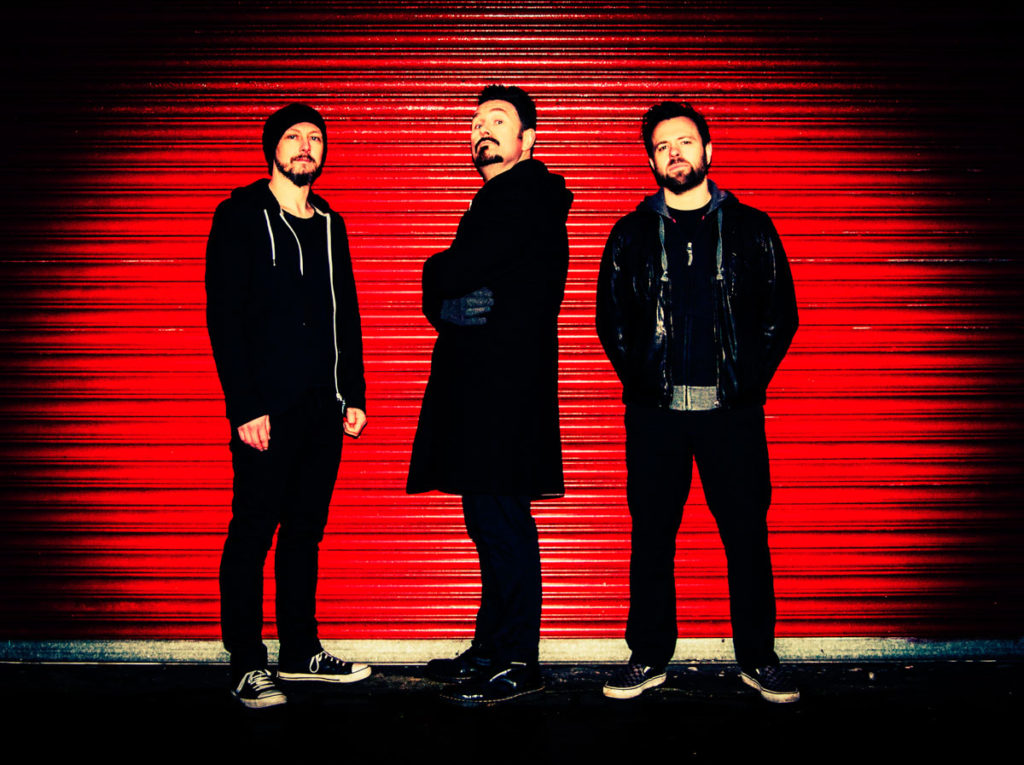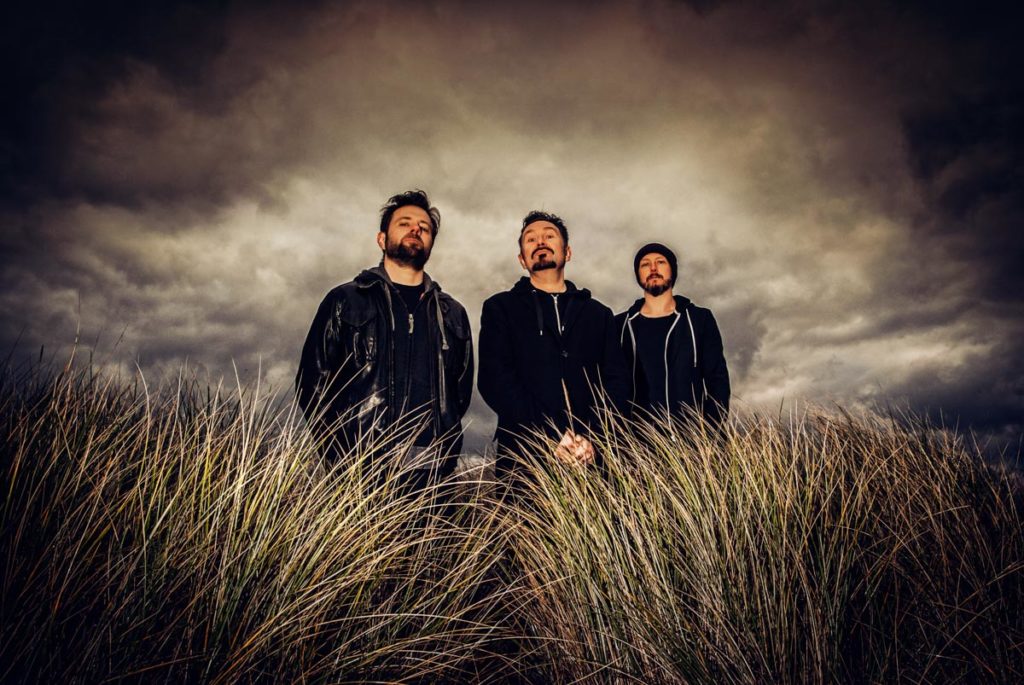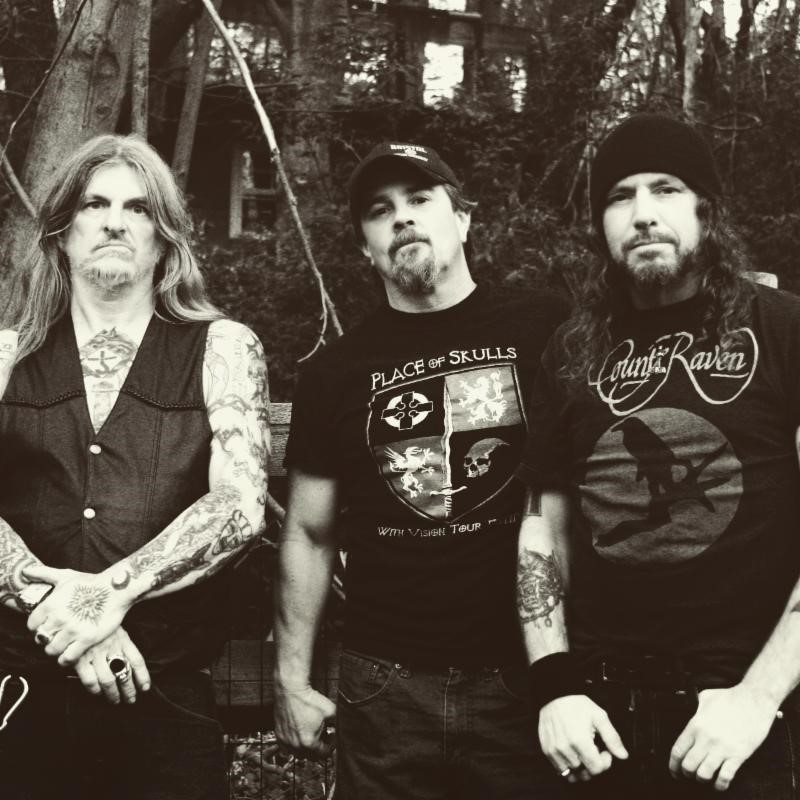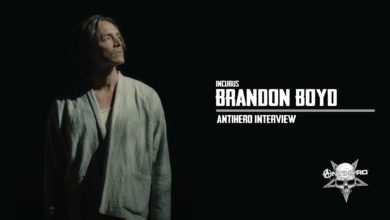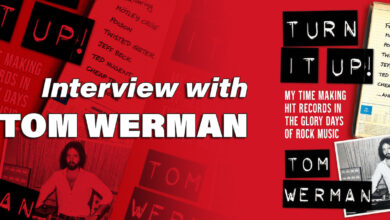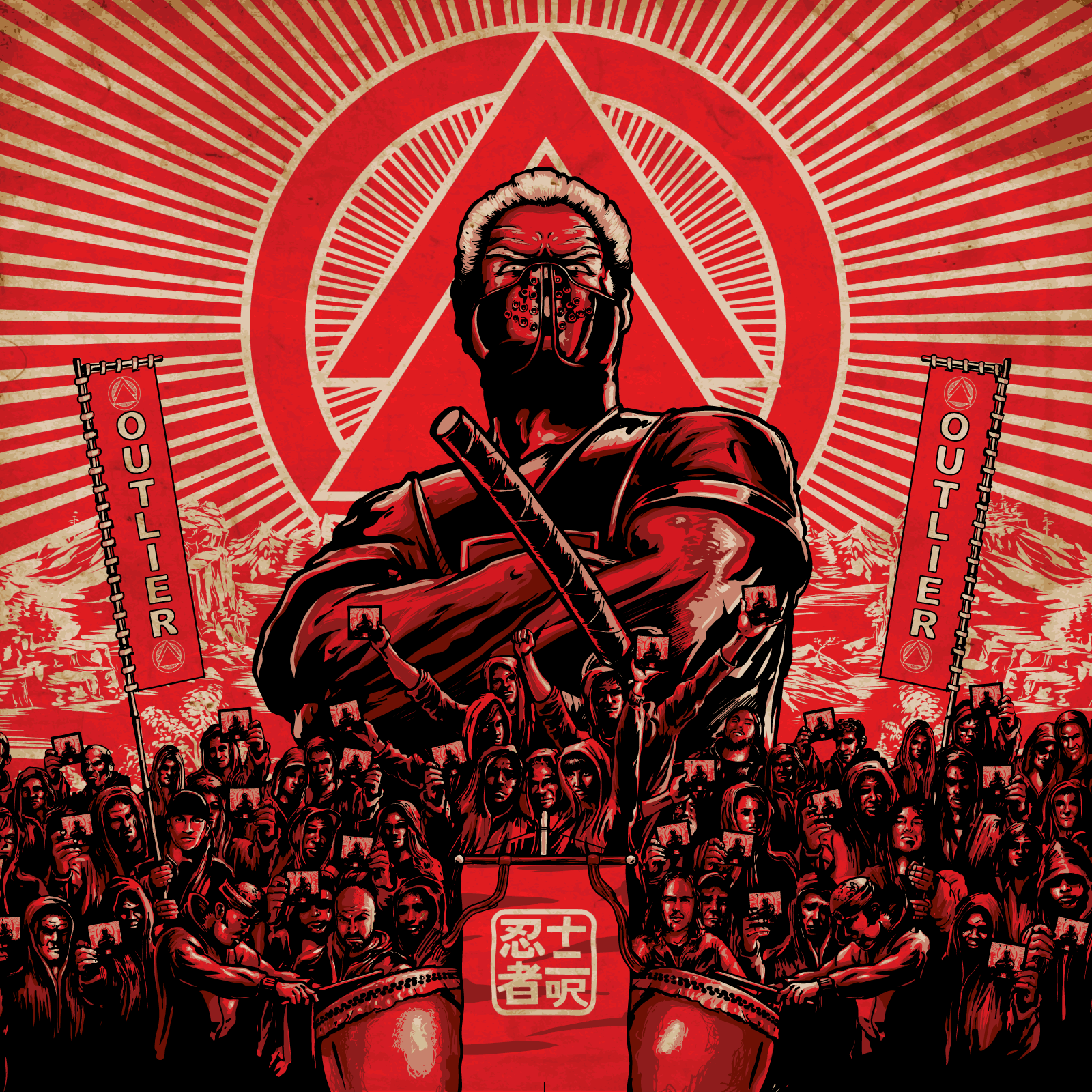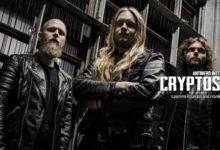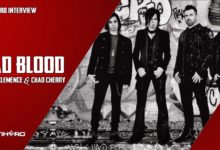Interview with Andy Cairns of THERAPY?
Interview by Mark Dean
[separator style=”line” /]It’s the twenty-first anniversary of Infernal Love. Do you think the album has become more appreciated in recent years than it was at the time?
Andy Cairns: Yeah, way more. I think people understand it a bit more now, and we’re more comfortable as a band. I think it just took on such a stigma because it was after Troublegum. It was completely different. And the reaction to it when it came out back in the day was completely different. It was like a different band. A lot of people admire the bravery, but at the same time, commercially it literally lost half or three quarters of our fan base overnight. We’d always been like an underground band, NME and stuff like that. And then Troublegum was a worldwide hit, and at that point in time it was mostly rockers and metallers. When they heard Infernal Love, a lot of them didn’t like it, so we lost the same three quarters of our fan base.
It wasn’t rocky enough for a lot of people. A lot of people like it. We’re playing to like 600/700 people tonight, 1200 people in London, shows all over the country to about 400 people a night, so it’s good. If people told me 20 years ago that we’d still be playing the album in 20 years’ time, I wouldn’t believe them. I thought it’d be one of these that was buried.
It’s the way the music business works now, it gets the band’s name out there. When we did the Troublegum shows, we were playing to a lot bigger crowds than the Infernal Love one. We did the European stint of the Troublegum shows, we were playing to 2,000 people a night. That was the way we looked on it, and that was just before Disquiet came out. So that was getting 2,000 people coming to a Therapy? show, 98% of them probably hadn’t bought a Therapy? record in years. People that maybe, they came along, and all of a sudden, six months later, we’ve got a new album yet. Maybe they’ll turn around and support the band again. So that was the thinking about that.
You’re still going. I mean, how do you attempt to explain that? You’ve never been a band that did the same formula. Each album is something different.
I think that’s why we’re still going. We constantly keep ourselves interesting. I think also if you’re a part of a movement, like if you were part of the whole hair metal movement before grunge. Whenever grunge came along, you died off. A lot of those bands that were killed off with grunge, they’re only coming back recently really, a lot of them. Because they said grunge killed off Guns N’ Roses, now Guns N’ Roses are bigger than ever. A lot of the grunge bands, brit rock, brit pop, a lot of people said that’s dead. But you look at bands now like Alice In Chains – you look at the new singer – they’re back and touring again. So I think what happens is when you belong to one certain genre, you die with it for about 10 to 15 years when that dies. Whereas us, we always just did our own thing. So it always meant that even if we’d lead with Troublegum, we were playing massive big venues and selling a lot of records. But then it meant that when that went away, we still had a cult following worldwide, so we can go to pretty much anywhere in the world and play 300/400 people. If you’ve got a good formula and hit on it, and you’ve got the balls to stick to it, fine. But we’re just so restless, musically.
It’s the same from those early albums, you’re always trying to do your own thing, and make some things up, styles and genres. So looking back at the career, how do you view the legacy? if you look back at the catalogs and stuff, are you proud of what you’ve achieved? You’re still doing it all this time.
I’m really proud. One thing that I’m really grateful for is that we have a bunch of songs that everybody knows, and we have one album that everybody knows. If you ask any rock fan anywhere have they heard of Therapy?, even the younger ones will have heard of Troublegum. I remember Lemmy years ago saying that what he loved the most is that he had one song, so even if everything else was wiped out, he’d have “Ace of Spades,” and everyone would go, “That’s ‘Ace of Spades.’”
And you still made your family proud. I think you said to me one time, actually, the feeling when your parents saw you on Top of the Pops the first time.
The thing is that it’s still easy enough to make a living if you do it the right way. It’s what we want to do, and we’re doing it for the right reasons. Coming from Ballyclare and Larne, we never wanted to do it…I didn’t do it because I wanted to play golf with Elton John. I did it because I just wanted to still be doing it 20 years later.
Your new EP Tides is coming out, and it’s got a couple of new songs that aren’t on the album. I’m just wondering if those are left over from the album sessions, or are they something you recorded and wrote subsequently?
No, they were both meant to go on the album. Tom Dalgety, the producer, we did “Smile or Die” and it’s a bit more chaotic, and when Disquiet was being put together, “Smile or Die” was a lot more ‘rough and raw’ and a bit more “Jesus Lizard,” a bit noisier, a bit more In Utero by Nirvana than the rest of the album, and it didn’t sound right when we put it in with the track listing. It sort of jumped out. But we thought it was a good song, so we put that in. And then “Slippies,” it’s almost like a melodic song, with a really pretty melody, and it didn’t sit right with them. And we even thought, “We’ll put these in with another record or we’ll put them out if we do a single,” and then we did that. They came in handy for that.
You’ve always been known as genuine music fans. You go out and attend gigs when you’re not actually touring. Introducing your influences to a new generation. I’m just wondering, with The Membranes, that are supporting tonight, it’s a name that I’ve heard but obviously they’re a band that you guys have probably been fans of probably for years.
Oh, completely. Whenever we were kids. The Membranes were around the first time in the 80’s, and this is like ‘87-‘88, and myself and Fyfe used to love The Membranes and we’d have their records, and we really listened to them a lot. And they’re noisy, they’re a bit different, there was something a bit … their guitars were a bit spikier, the lyrics were funny. Then we got to meet them. We covered one of their songs, “Tatty Seaside Town.” John Robb, the singer, produced one of our B-side and we’ve been with them ever since. And then they hadn’t brought out a record for a long time, and they brought out Dark Matter/Dark Energy, and we all got it, because we’re fans. And it just blew our minds. And we mentioned it to John, and John said, “Take us on tour then.”
Again, leading on from that, any new bands that you listen to when you get to hang off the road? Do you ever take time away from music?
To be honest, if I go to the gym or walk the dog, I’ve got my earphones in. I do, all the time. I’ll be walking down the street, getting groceries, got my headphones in. The only time I’m not listening to music is when I’m watching football. I’ve always got stuff on. I listen to new music.
Chelsea was it that you follow?
Yeah, I still follow Chelsea. I’m going to a match tomorrow. I’m getting up at 8 o’clock tomorrow so as I can go down to London to see the Chelsea-Stoke game.
What would you say is your biggest regret, looking back? Obviously, the Therapy? legacy is something that you’re proud of, but is there anything you look back and say, “We should have done that,” or is just a case of you live and learn, you go on?
There’s only one thing, I think we’re here for a reason. I think we’re still here because whatever we’ve done, we still want to be in this band. I think one of the things for our own mental health is that we released Troublegum and it had been out for nine months, and we had toured the world three times in nine months, and we hadn’t been home. And the record company really pressured us and management and everyone to go and do a follow up and we hadn’t the songs written. So we had, I think we had a week off, and we went into the studio and did those songs.
And we managed to get them firm enough together, but I often think, personally, I would have loved to have taken six months off. I’d love to have finished Troublegum in December 1994. We did the show at the Ulster Hall, would have loved to have stayed home and said, “Do you know what, I’m not going to drink for two or three months, I’m not going to go out and party, I’m going to go see my old mates, I’m going to get my head together. And then, the band, we should all get together and start rehearsing.” Then again, it’s the happiest I’ve ever been. The way I see it is that maybe it took that to happen for me to be really happy with the way it is now.
Do you find there’s more of an onus as a band to sort of self-promote and you have to put in more, whereas years ago you had the likes of the record company doing things?
I think we do, but I think it’s for the better. Because when you’re on a major label and you’re selling records, you do lose track of reality a little bit in that, if this had been the Infernal Love a couple of years ago, we’d be playing the Apollo up the road to 3,000 people. We wouldn’t even be in here. We’d have literally got to the gate and done the sound check in 20 minutes, and a car would have taken us out back to the venue, and we would have turned up 10 minutes before the show in a car, walked on the stage, did the show, and if we had fancied a party, there’d have been an after, everybody always went straight back to the hotel. And every night was like that. I would go out and party and stuff then. You’d begin to lose sight a little bit, you’d lose track of friends.
The whole thing becomes like a circus and I quite like it more. Because when the bands start out, people forget. Before Troublegum, we had three albums, and we’d been at it for nearly five years. It’s only when Troublegum came out that we started the whole tour buses and big hotels. So we’d had five years. I used to be the driver because I was the only one old enough to drive a van. So I drove, for Babyteeth and Pleasure Death, I drove on those tours, around Europe and stuff.
On the first European tour, I’d get up in the morning, drive to Brennan or Berlin or whatever, we’d load all the gear up, we’d do the gig, then we’d get pissed in the back of the van. I’d have to stay sober. Then I’d drive maybe three or four hours the next bit. But we loved it. It was better than working in a factory, for me.
Just a final one then, who would you like to sit down and interview? Not even a musician. I know you like your reading and your different things.
I like the Irish actor, Michael Fassbender, I think he’s really good, and he’s been in so many different movies that I like. He’s been in Shame, the one about the sex addict. He’s been in Twelve Years A Slave, as a horrible master, but apparently he used to be in some metal band as a kid. He lived in some wee culchie town outside Wexford or somewhere like that, and apparently he was in loads and loads of metal bands when he was a kid. I think he’s a good actor.
You could talk about both the acting and the music.
I grew up in Ballyclare, he grew up in a wee village as well, so I’d like to sit and chat with him.
That’s great, thanks very much.
Thank you!

